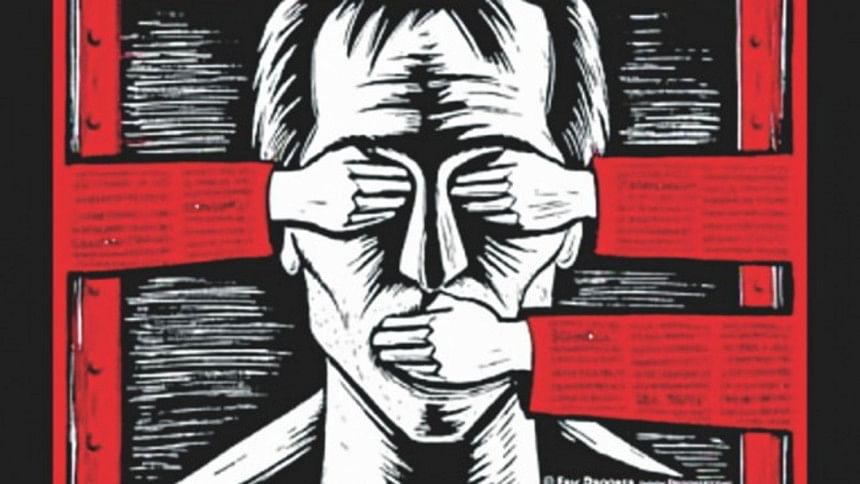TIB expresses concern over press freedom

Expressing serious concerns over press freedom in the country, Transparency International Bangladesh yesterday said persistent attacks, ill-motivated lawsuits and widespread harassment are not conducive to an anti-discriminatory "new Bangladesh".
In a press statement, the graft watchdog urged the interim government to implement strict measures to curb these "alarming trends" to ensure a congenial environment for journalists and the media.
In 14 years during the previous regime's rule, Bangladesh's position in the World Press Freedom Index fell by 42 notches, with all standards of media freedom consistently declining, said TIB Executive Director Iftekharuzzaman.
He said the sacrifices made by students during the July-August mass uprising presented the nation with a unique opportunity to build a "new Bangladesh".
However, despite the interim government's repeated commitments to ensure media freedom and protect it from external influences, the assault on media and journalists is continuing, he added.
"TIB notes with deep concern that various self-interested groups are intensifying attacks on certain media organisations, engaging in slander, threats, and intimidation.
"It appears that attempts are being made to suppress the media, harass journalists, or manipulate coverage whenever it challenges the interests of powerful factions. Such incidents serve as a troubling signal for the future of a free press in Bangladesh," Iftekharuzzaman said.
He questioned if the media's freedom amount to a hollow assurance. He said the attacks reflect negatively on the "new Bangladesh".
"Arbitrary threats, attacks, sieges, and, in certain instances, trivial lawsuits designed to resolve personal disputes or the complete revocation of accreditation cards are unmistakable indicators of an anti-people authoritarian regime."
He said efforts to regulate the media, and echoing the practices of the fallen authoritarian regime contradict the ethos of free thought and the anti-discrimination principles that characterise the "new Bangladesh".
"The suppression of dissent and the insecurity experienced by the media will inevitably lead to the resurgence of authoritarianism."
Iftekharuzzaman said, "TIB thinks that journalists accused of specific criminal acts or those actively involved in the past authoritarian regime should be thoroughly probed. However, incidents such as arbitrary cases against journalists labelling them as the associates of the fallen authoritarian government; the cancellation of permanent and temporary press accreditation cards given by the Press Information Department, threats, and dismissals do not convey any positive message regarding media freedom in the country.
"Rather, they serve the interests of those who follow the perilous theory that dissent is the friend of tyranny."
The TIB does not believe that any journalist should be penalised for engaging in journalism, he said.
The graft watchdog urged the interim government to act swiftly and forcefully to establish a fearless atmosphere for independent journalists. "If not, there is a serious chance that media freedom may turn into an empty promise."
The TIB also urged journalists and the media to maintain ethical journalistic standards and prevent the abuse of their authority.

 For all latest news, follow The Daily Star's Google News channel.
For all latest news, follow The Daily Star's Google News channel. 







Comments